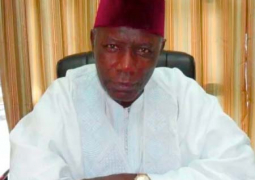Once more, Muslims in The Gambia have joined the rest of the Ummah to observe the feast of Edul-ul-Adha locally known as Tobaski, but not without controversy.
It has been reliably gathered by this paper, through our reporters who went across the country to join their families in observing the day, that while some people in the Greater Banjul area and some provincial towns prayed on Sunday, the majority of Muslims in the country observed the day on Monday.
Sadly, this tends to show the disunity among the people of the country’s major religion.
To put to an end this kind of controversies would require a high sense of tolerance and exercise of maturity and respect for one another.
Despite the call from the Gambia Supreme Islamic Council for people to pray on Sunday, most people gave a deaf ear to the call.
The question that one would love to have answered is: Why is it that people ignored the council’s call?
It is either the council or the people who are not on the right path.
One thing for certain is that if the council does not engage the imams and scholars across the country constructively during the sighting of the moon, then this kind of controversy would continue, no matter what measures are taken and by whomever.
This is a religious matter, and any attempt aimed at resolving it must be based on our shared values of tolerance and respect in accordance with Islamic norms.
The worst thing is, we have learned, in some communities the Tobaski prayers were observed both on Sunday and Monday.
It has been said by some, by way of explanation, that the Gambia Supreme Islamic Council was also too late in their announcement, and while others feel like, perhaps, something might have gone wrong somewhere and, therefore, they would not be part of it.
In a small country like The Gambia, it is very easy for people to pray on the same day, as used to be the case some years ago.
However, for this to happen, the council must win the confidence of the people or follow the people.
The issue of praying on two separate days is creating more problems for people, especially civil servants who, for instance, when they prayed on Monday might not be able to report for work the following day.
We believe something seriously needs to be done to address the issue, by handling the matter with fear of God in our hearts.


